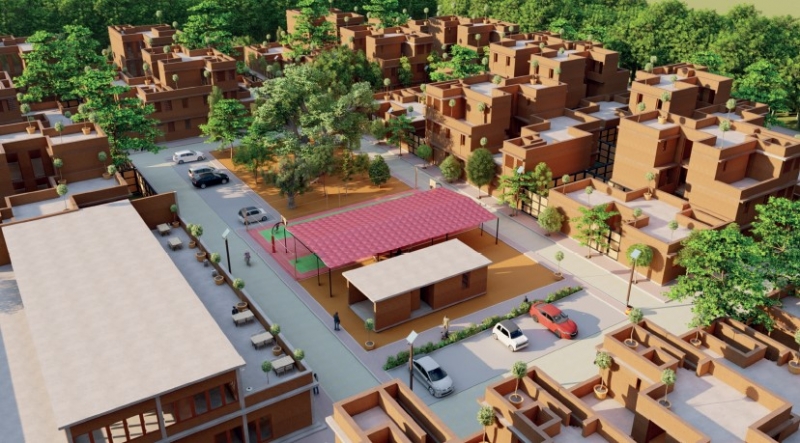Sustainable urban development and construction, especially housing, is a high priority of the Government of Senegal. In cooperation with the Ministries of Environment and Sustainable Development (MEDD) and Urban Planning, Housing and Public Hygiene (MULHP), PEEB through the French Agency for Ecological Transition (ADEME) supports the implementation of key projects that integrate the principles of bioclimatic construction. These projects will demonstrate the feasibility and benefits of bioclimatic buildings. At the same time, they will inform the ‘100,000 social housing programme’ under development by the MULHP to spread them across the whole social housing sector of Senegal.
A call for proposal to senegalese developers and promoters in July 2021 yielded twelve proposals: educational, housing and administrative buildings from public and private sector. Two winners were selected on 9th of November, the Ban-Ban eco district project in Thiès, led by Worofila and Elémenterre, and the Fawru commercial building for agriproducts project in Matam, led by the Departemental councils of Matam, Kanel, Podor and Maison des Yvelines. A third project, already financed by the World Bank, was granted a lighter technical assistance in terms of capacity building on bioclimatic and low carbon techniques, for the construction of a primary school and a socio-cultural center in Saint-Louis, led by the Municipal Development Agency (ADM).
Both projects were selected due to their high replication potential for adopting energy efficiency and bioclimatic concepts and integrating bio-sourced local and low carbon materials. In 2022 the two winners will receive technical assistance from a team of experts which will help them in designing energy efficient and bioclimatic buildings in order to reduce need for air conditioning while providing a high level of comfort. These pilot projects will also benefit from the technical support to conduct cost-benefit analyses of identified solutions based on life-cycle costs to assess the upfront costs for low-energy buildings and explore options for climate financing and for scaling up.


 more
more